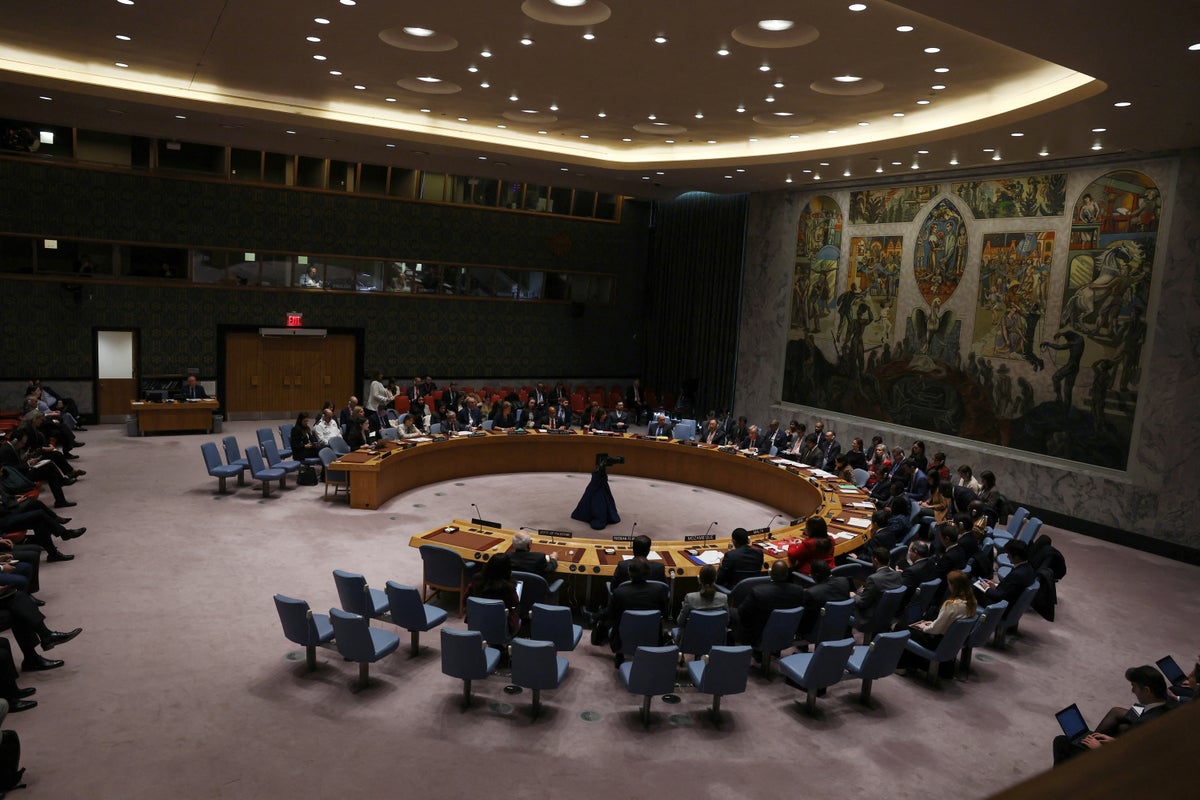
The United States vetoed a United Nations Security Council resolution on Friday calling for an immediate humanitarian ceasefire in Gaza, a measure advocates argue is necessary to prevent continued mass suffering.
The United Kingdom abstained from the vote, while 13 Security Council members voted in favour of a draft resolution brought forward by the United Arab Emirates.
The resolution also called for the immediate release of all prisoners taken during the bloody two-month conflict between Israel and Hamas.
Robert Wood, deputy US ambassador to the UN, told the council that such a ceasefire “would only plant the seeds for the next war.”
“Even as we have supported the right of another member state to defend its people against heinous atrocities and acts of terrorism, the US at the highest levels has undertaken intensive diplomacy to save lives, and lay a foundation for durable peace,” he said.
“American diplomacy opened the way for the first trucks that flowed into Gaza. With aid in partnership with Qatar and Egypt, it helped reunite more than 100 hostages with their loved ones and dramatically expanded aid to civilians in Gaza during a seven-day-long humanitarian pause.
United Nations Secretary-General Antonio Guterres attends United Nations Security Council meeting— (REUTERS)
“Hamas however, has a different set of goals. Its refusal to release young women hostages led to a breakdown in the pause and resumption of the fighting. This council’s failure to condemn Hamas’s October 7 terrorist attacks, including its acts of sexual violence and other unthinkable evils, is a serious moral failure.”
He added: “For that reason, while the US strongly supports a durable peace, in which both Israelis and Palestinians can live in peace and security, we do not support calls for an immediate ceasefire. This would only plant the seeds for the next war.”
Draft resolutions do not become the official position of the UN Security Council until they are adopted.
A seven-day pause in hostilities in the enclave, which allowed the release of hostages and prisoners and the delivery of humanitarian aid to Gaza, ended on 1 December.
Joe Biden has consistently rejected an overall ceasefire, saying that Hamas should release all of the hostages taken from Israel on 7 October.
Around 1,200 people were killed by Hamas militants in their surprise attack on Israel. Gaza’s Health Ministry says more than 17,480 people have been killed during the ongoing Israeli campaign in the enclave. Estimates suggest up to half of the Palestinians killed so far have been children.
The US veto comes as American officials have expressed some of their most direct criticism yet of the Israeli military, a key US partner that receives billions of American aid dollars each year.
“As we stand here almost a week into this campaign into the south… it remains imperative that Israel put a premium on civilian protection,” US Secretary of State Antony Blinken said at a press conference in Washington on Thursday. “And there does remain a gap between... the intent to protect civilians and the actual results that we’re seeing on the ground.”
Humanitarian officials are warning that if the war continues, Gaza is at a “breaking point,” with its civilians on the verge of mass starvation.
Ahead of the Security Council vote, UN Secretary-General Antonio Guterres told delegates of “a complete breakdown of public order and increased pressure for mass displacement into Egypt,” adding that “while indiscriminate rocket fire by Hamas into Israel, and the use of civilians as human shields, are in contravention of the laws of war, such conduct does not absolve Israel of its own violations.”
Inside the Strip, “civil order is breaking down,” according to Thomas White, Gaza head of the UN’s relief and work agency for Palestinian refugees (UNRWA).
“The streets feel wild, particularly after dark - some aid convoys are being looted and UN vehicles stoned. Society is on the brink of full-blown collapse,” he warned in a statement Friday on X.







